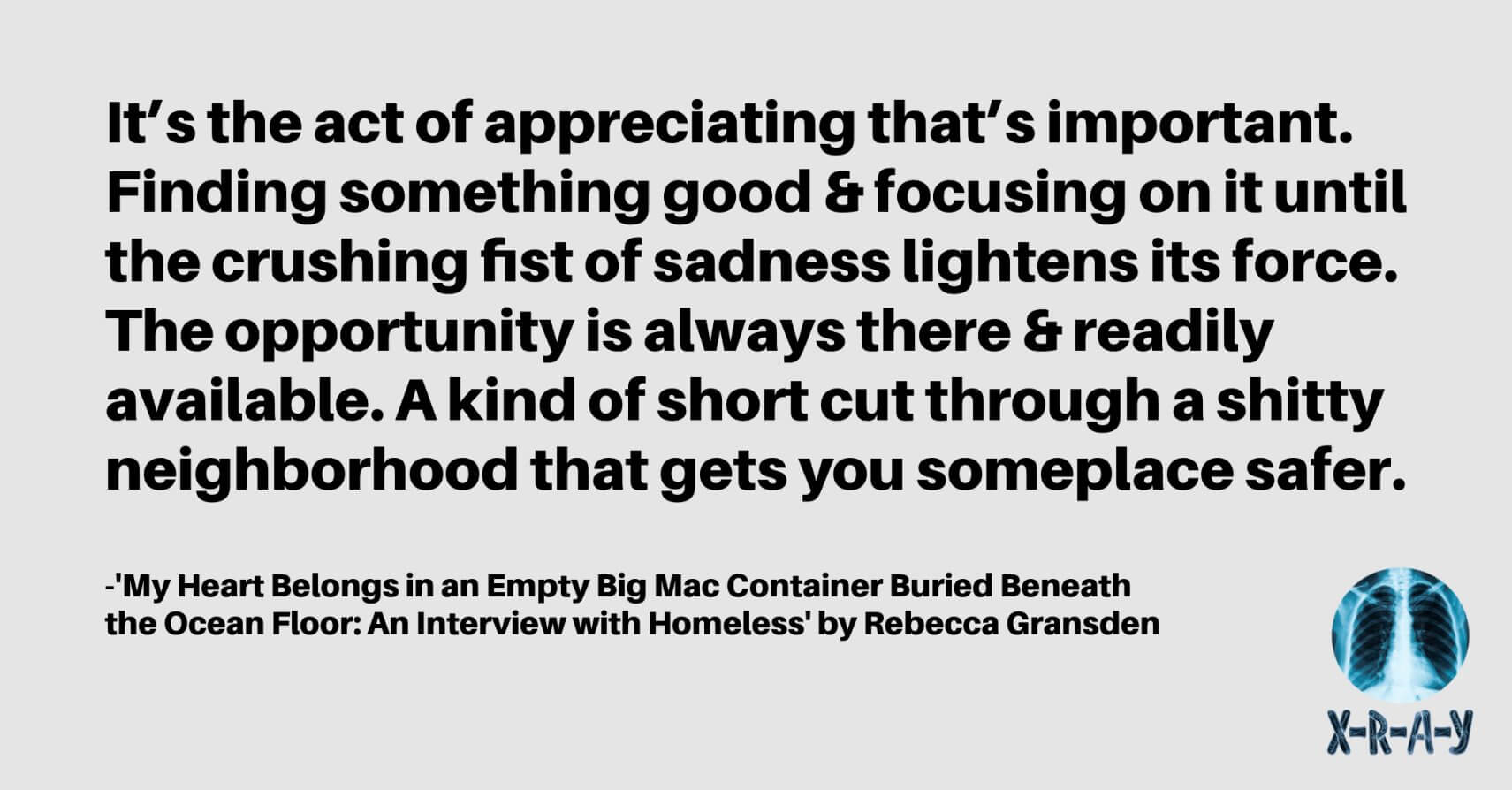
MY HEART BELONGS IN AN EMPTY BIG MAC CONTAINER BURIED BENEATH THE OCEAN FLOOR: AN INTERVIEW WITH HOMELESS by Rebecca Gransden
Have you ever found yourself adrift, without a clue on how you got there? The blue whale is the largest mammal to have existed on our planet. A small person can fit inside a blue whale heart. In My Heart Belongs in an Empty Big Mac Container Buried Beneath the Ocean Floor (Clash Books, 2024) Homeless contemplates the messiness of a heart ready to overspill with sadness, a sadness drawn from fathomless wells, deep and lightless as the bottom of the sea. How many fast food containers have already made it to that desolate ocean floor? I spoke with Homeless…
